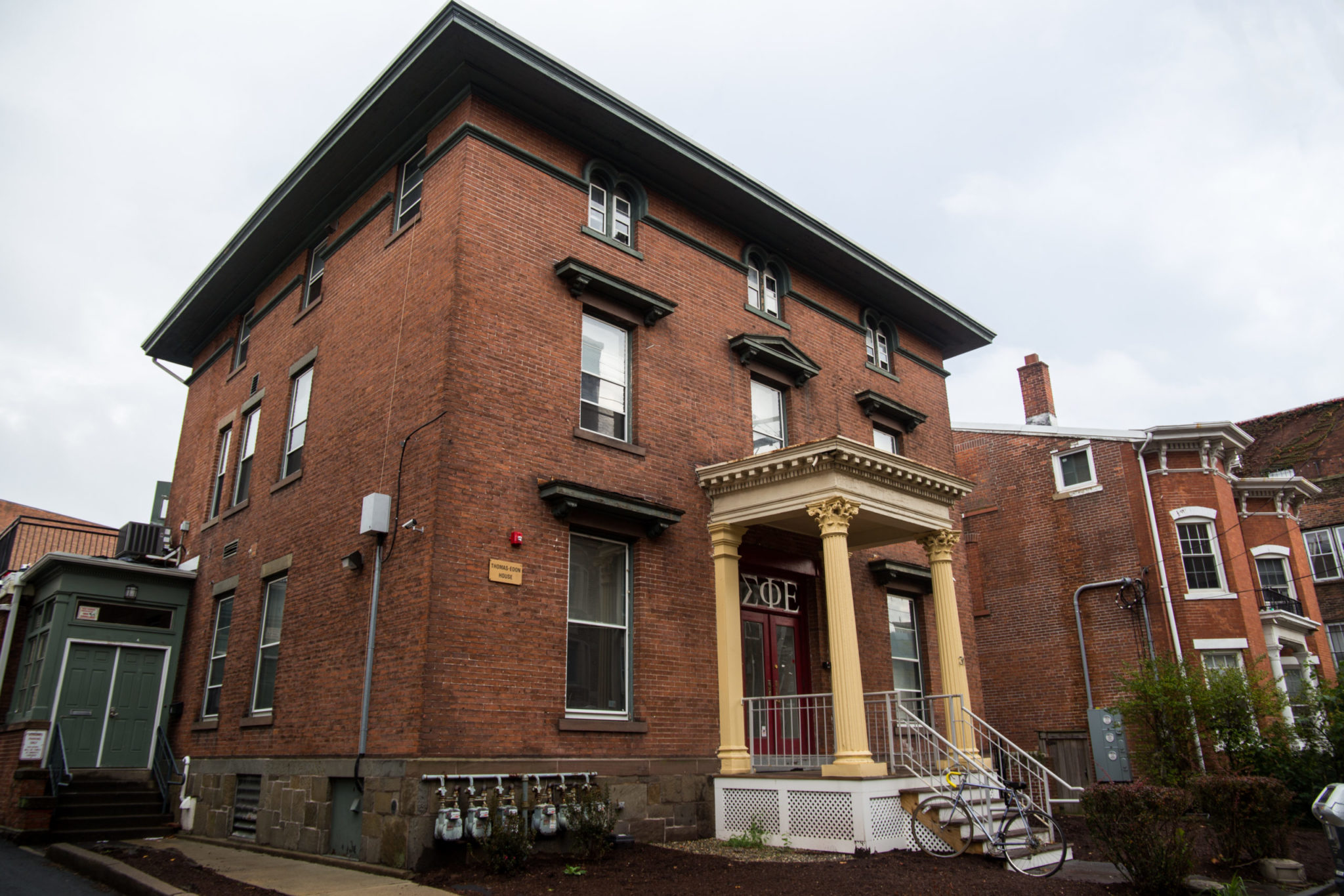
Yale Daily News
Renewed discussion of sexual harassment and assault connected to Yale’s Greek life has prompted University representatives, student advocacy groups and some of Yale’s fraternities to rethink the value of single-gender social groups.
Following a series of sexual assault and harassment allegations, Yale’s fraternities came into the national spotlight in 2017, sparking a conversation about gender discrimination and the role of fraternities on campus. While some fraternities have opted to disaffiliate from their national chapters or go co-ed, others have come under fire from lawsuits and university-wide sanctions.
Delta Kappa Epsilon was suspended for five years after a 2010 incident when pledges chanted sexual obscenities outside of the Yale Women’s Center as part of the fraternity’s “Hell Week.” In March 2017, DKE came under scrutiny again after the fraternity’s former president was accused of rape by a female student. He was suspended until the summer of 2018 for “penetration without consent.”
In February 2018, following an outpouring of allegations of sexual harassment and assault against members of DKE, Dean of Yale College Marvin Chun opened an investigation into the allegedly sexually hostile climate of the fraternity.
“I condemn the culture described in these accounts; it runs counter to our community’s value of making everyone feel welcome, respected and safe,” Chun said. “I also offer some plain advice about events like these: don’t go to them.”
The review, which was conducted by Yale Senior Deputy Title IX Coordinator Jason Killheffer, did not recommend any consequences specific to DKE. Instead, it made broad recommendations about improving the culture of social life on campus, including the addition of more co-ed social spaces and mandatory sexual assault prevention training for fraternity members.
The University opted not to discipline the fraternity, arguing that past sanctions on fraternities have done little to curb their behavior.
“While it is true that Yale has sanctioned unregistered organizations by banning them from engaging with students on campus, the bulk of fraternity activities occur off campus, so these kinds of sanctions have little effect in limiting them, particularly since they don’t rely on Yale College resources,” Chun told the News in January 2019.
DKE also made national news in September 2018, when a 1985 photo surfaced of DKE members holding a flag woven from women’s underwear. Supreme Court Justice Brett Kavanaugh ’87 LAW ’90 was a member of the fraternity at the time the photo was taken, although he does not appear in it.
In August 2018, the Yale chapter of Sigma Alpha Epsilon broke from the national fraternity, rebranding itself as LEO. The disaffiliation came roughly three years after the chapter first announced its plans to disaffiliate in 2015.
“We are pleased to have finally completed the disaffiliation process,” an anonymous LEO representative told the News. “This is an important milestone in our ongoing effort to provide a safe and fun social space for members of the Yale community. We reaffirm our commitment to our core values, which include mutual respect, appreciation of our community and accountability.”
Although then-LEO President Grant Mueller ’17 said that the decision to disaffiliate was mainly made because the chapter no longer wished to rely financially on the national organization, the break followed campus outcry after the chapter was accused by students of holding a “white girls only” Halloween party and was banned from campus for violation of Yale’s sexual assault policies.
In February 2019, three female students, members of the student advocacy group Engender, sued Yale and nine Yale fraternities for gender discrimination and for fostering a hostile sexual environment. The federal class action complaint asked that male-only fraternities “gender integrate.”
“Obviously, a lawsuit was not our first option, nor was it our ideal option,” said Anna McNeil ’20, one of the students who filed the lawsuit. “We’ve had to come forward with our personal stories of sexual misconduct, which isn’t ideal, but it’s our last resort given that we’ve tried to appeal to our peers and we’ve tried to appeal to our administrators and our Yale administration failed us and continues to be self-interested rather than concerned on behalf of the students that frat culture puts at risk.”
After Yale moved to dismiss the suit, Engender challenged the University in court in October 2019. In February 2020, however, the suit was dismissed on all counts but one: a Title IX complaint related to McNeil’s 2016 allegations of sexual assault.
In October 2020, the Yale chapter of Sigma Phi Epsilon announced their disaffiliation from the fraternity’s national organization and voted to open its membership to all genders. Deciding that the organization would also no longer carry Greek letters, Sigma Phi Epsilon rebranded itself as the Edon Club, and the first class of women rushed the organization in March 2021.
“I’m incredibly excited to be a part of one of the few all-gender spaces on campus, and I hope Edon is the first of many single-gender groups to make that change,” said Lucy Minden ’22, a member of the Edon Club.
Edon has tentatively planned rush processes for the fall and spring semester of the 2021-2022 academic year.







